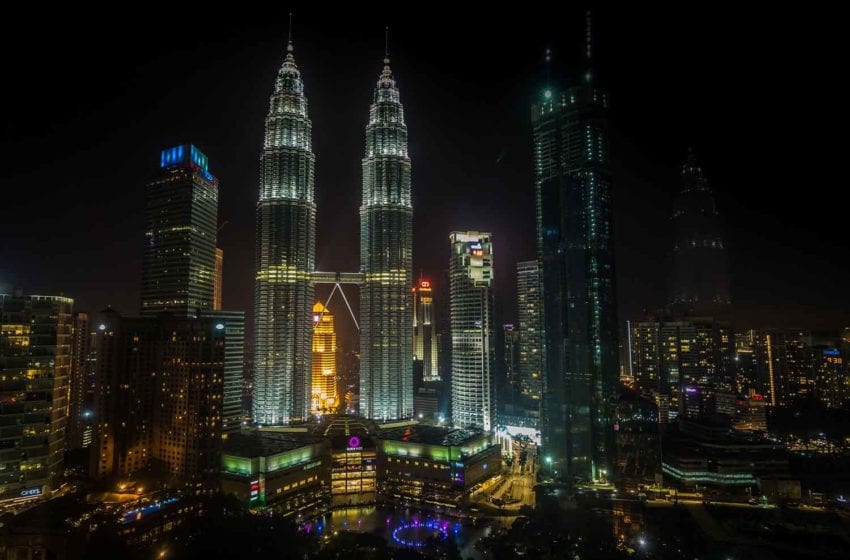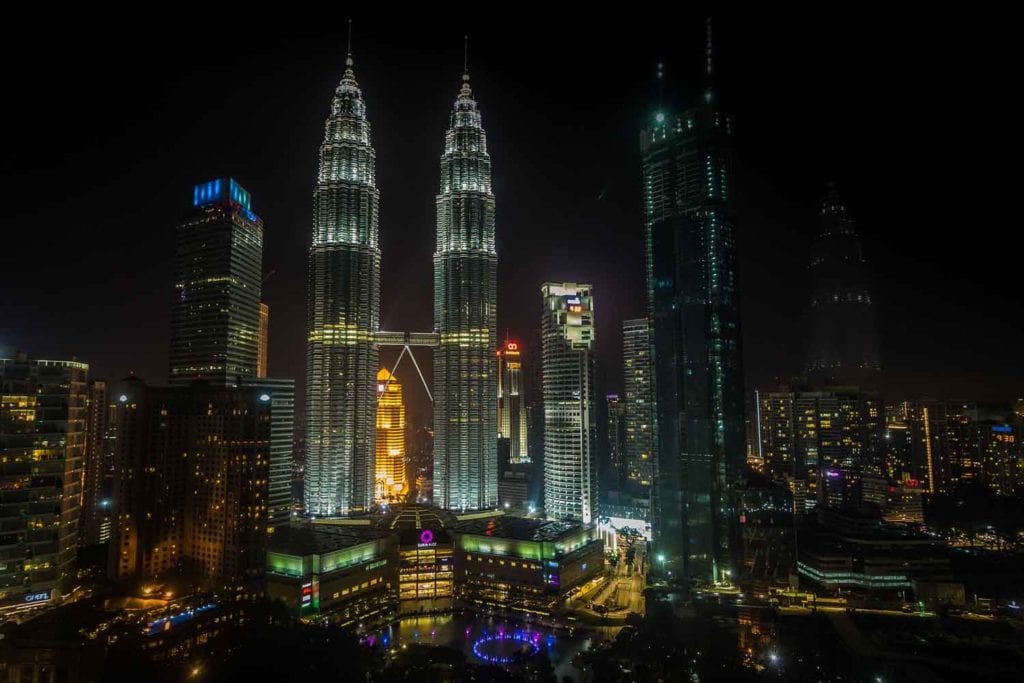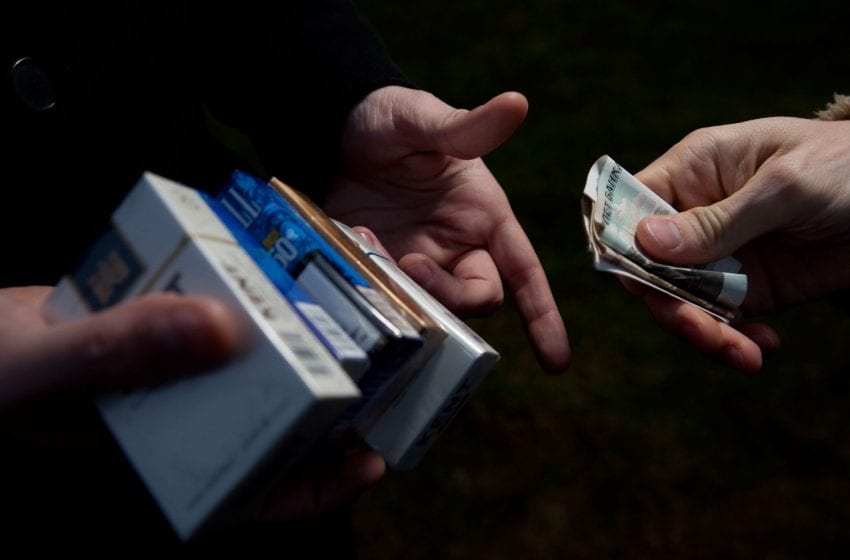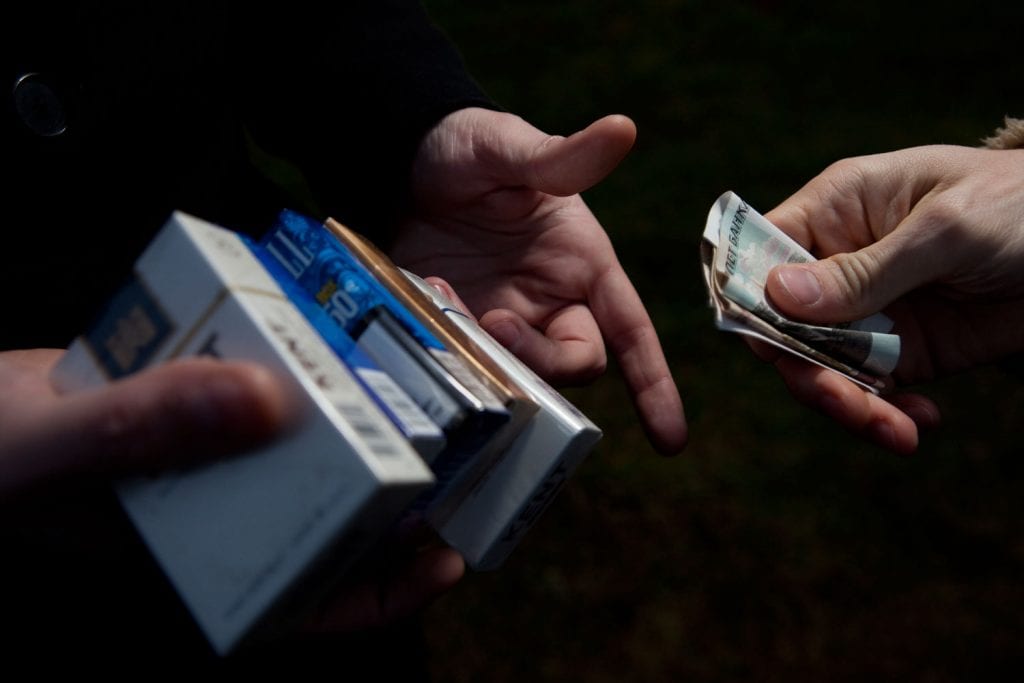
JTI’s Cormac O’Rourke reflects on Malaysia’s struggle against the illicit trade in tobacco products.
By Stefanie Rossel
Malaysia holds a sad record: It’s the market most affected by illicit cigarettes. According to Nielsen, about 12.2 billion sticks of contraband cigarettes were sold and consumed in Malaysia last year, outstripping the number of cigarettes sold legally in the country.
Most illegal cigarettes are brought into the country, which has a total coastline of 4,675 km, through one of its numerous ports or through neighboring Singapore. Declared as nontaxable goods destined for a third country, they are not examined by customs. Instead of being shipped to their destinations, however, the cigarettes are smuggled into Malaysia.
Tobacco Reporter spoke with Cormac O’Rourke, general manager of Japan Tobacco International (JTI) Malaysia, about the strategies required to address the issue.
Tobacco Reporter: Illegal cigarettes accounted for 62.3 percent of the Malaysian cigarette market in 2019, up from 58.9 percent one year previously, according to Nielsen. What’s the situation today?
Cormac O’Rourke: The illegal cigarette trade situation in Malaysia remains critical in 2020. The latest reading of the Illegal Cigarettes Study for June 2020 shows illegal trade at 60.5 percent of the market. Malaysia continues to be No. 1 in the world for illegal cigarette trading, costing the country approximately $1 billion in lost tax revenues annually.
To what extent has the outbreak of Covid-19 and the related “movement control order” (MCO) contributed to the problem?
The MCO period posed several operational issues for the legitimate tobacco industry. In effect, supply of legal products was severely disrupted albeit not fully halted. During this period, the illegal trade syndicates pivoted to the e-commerce channel for sale. Even food delivery services were engaged for distribution. This resulted in a loss of earnings for retailers—[there are] approximately 60,000 throughout Malaysia who rely on the sales of tobacco as a primary source of income. The vacuum was filled by illegal traders where it is estimated that approximately $250 million alone of the annual $1 billion was lost in tax revenue during this short period. Normal supply has since resumed but illicit trade incidence remains stubbornly high at 60.5 percent.
The Malaysian Ministry of Finance has established a multi-agency task force (MATF) to combat illicit cigarette trade. How effective has this initiative been?
The establishment of a MATF in January 2020 led by the Royal Malaysian Customs has paved the way for a public-private sector partnership with a clear term of reference to comprehensively address the illicit trade issue in Malaysia.
Addressing the long-standing illegal trade problem in Malaysia requires a whole of government approach involving ministries and law enforcement agencies. We believe that the MATF with the involvement of the Royal Malaysian Police Force, Ministry of Domestic Trade and Consumer Affairs, [and] Ministry of Finance, among others, can drive enforcement efforts and also ensure sensible regulatory policies are discussed and validated so as to not exacerbate the problem any further. We are optimistic that the current government is now relooking into this issue seriously and [has] recently initiated a meeting in early August to reinstate the MATF with all stakeholders.
This is a national problem costing the country between $1 billion a year in lost tax revenue. It is further costing the small and medium enterprise sector, in particular retailers, billions of ringgits in lost margins. This is damaging not only from a jobs point of view but reputationally for the country as it strives to compete for its fair share of foreign direct investment.

You have named cigarette transshipment and repeated excise tax increases as issues that exacerbate the illicit trade problem. Furthermore, Malaysian smokers have mentioned corruption as the biggest hurdle to controlling illicit cigarette trade in a recent survey by British American Tobacco. What has been done recently to tackle these issues?
Transshipment of illegal cigarettes through Malaysia is estimated to account for up to 50 percent of the illegal volumes coming into the country. This can only be done via the ports through a systematic approach to smuggling and abuse of documentation procedures. The industry has tabled recommendations for the government to ban the practice of transshipment for cigarettes. This, coupled with designating a single point of entry for tobacco products into Malaysia, would curtail the use of this channel for smuggling, remove the uncertainties related to processes and procedures as well as help address any corruption issues that may exist.
We believe that implementing the right policies in addressing this problem has to be the focus while enhancing enforcement effectively by deploying the various enforcement assets and powers available to relevant agencies controlling the borders, ports and even retail outlets. This has to be underpinned by a predictable stable tax environment, thus the call by the industry for an excise increase moratorium for the next two years. This will ensure that affordability will continue to improve while allowing time for the MATF initiatives to take hold.
What should be done in your view to better combat illicit cigarette trade in Malaysia? Is this a problem that can be solved at all?
Stamping out the black economy in Malaysia requires a real concerted effort that can only be addressed by absolute and resolute enforcement, which is why the setting-up for the MATF under the Ministry of Finance earlier this year was a significant step in the right direction and the reestablishment of the MATF a key action point to pursue by the government. Provided there remains a predictable stable taxation environment, targeted policies that close the loopholes currently being exploited, strong political will and stringent enforcement, there is a real chance to bring the situation under better control.
What are the consequences for your business in Malaysia, and what is your outlook on opportunities in that market?
The industry has been forced to make significant adjustments, addressing costs as well as reducing investment to cope with the elevated illegal trade situation. Illegal trading has impacted all parties throughout the legal supply chain.
Given the severity of the situation on the legitimate tobacco industry, retailers and associated enterprises, we call on the government to redouble its efforts to protect jobs and industry for Malaysia. A moratorium on excise tax would be a good start. Furthermore, there is an opportunity to lessen the load on the legitimate industry cashflows by deferring payment of excise and import duties, allowing for duty payment drawbacks for unsold goods as well as a reduction of import duties on ASEAN [Association of Southeast Asian Nations]-sourced products that is currently at 5 percent of cost. Releasing locked cash would ease some financial burden and more importantly would allow the industry to support retailer liquidity as they have been hard hit by the pandemic.
Malaysia also has a problem with illicit vapes, which reportedly made up 10 percent of the total Malaysian market in 2019. What’s the current situation, especially regarding the MCO during the Covid-19 pandemic?
The illegal vaping segment continues to grow unabated and accounts for an estimated 10 percent of the market. Nicotine-based vaping products are technically illegal in Malaysia given the provisions under the Poisons Act 1952 requiring any sale and distribution of nicotine-based products to necessitate a license from the Ministry of Health. However, no license has been issued to date.
The proliferation of vaping products, for which the Ministry of Health has indicated that 90 percent are nicotine-based, has been aided by not only the smuggling of such products that are sold in traditional brick-and-mortar stores [but also by] illegal online sales, most of which are imported and misdeclared as food items. Our position to government has been consistent for an appropriate regulatory framework to be established allowing for the proper introduction of vaping products in the country.
How is the problem of illicit vapor products also being tackled by the MATF and other stakeholders? How effectively has it been done so far?
It remains too early to assess given the recent reestablishment of the MATF, but we are hopeful that with proper policies in place and stronger coordinated enforcement, there will be a positive impact on the situation. We estimated that if illegal cigarette trading is reduced by 50 percent, the country would benefit from at least a $500 million increase in tax revenues. The efficiency of the MATF and its constituent agencies should be assessed based on the revenues that it can recover from reducing illegal trade, and we are confident that proper key performance indicators will be put in place toward that end.
Could you please describe the state of tobacco harm reduction in Malaysia?
The reduced-risk products segment is still in its infancy in Malaysia. While open tank vaping products have been around for the past several years, albeit illegally, heated-tobacco products have only been introduced in the past two years. Nevertheless, there remains an absence of a proper regulatory and taxation framework that would cover especially nicotine-based vaping products, which adds to the illegal segment in the country.
Our position has been consistent that a proper regulatory framework needs to be established to allow for the introduction of vaping products in the country. The current situation only allows for an unregulated and illegal industry to flourish.










